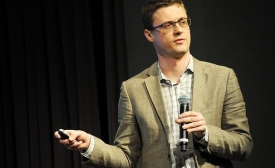Cultural Diplomacy
Canada will be responsible for designing and building a pavilion that will feature our country's rich talent and cultural diversity. The pavilion, which will occupy the Fair's main stage, will be filled with various Canadian cultural exhibitions; it will also offer programming such as author readings, dance, film and music that will promote Canadian artists and cultural entrepreneurs on the international scene.
A month earlier, the blossoming mood of rapprochement was given a sprinkling of goodwill when a New York Cosmos team including Brazilian legend Pele in their delegation traveled to Havana to face Cuba in a friendly. It highlighted the role sport has played to thaw hitherto chilly relations between the two nations, a strategic tool the United States has made use of repeatedly for decades.
There have been wonderful, detailed accounts of this historic visit, and its function (cultural diplomacy), nature (friendly and collaborative), and outcomes (artistic and financial commitments), so I won't rehash those here. What I'll focus on instead is the immeasurable component of art itself in the rebuilding of relationships at a people-to-people level.
The relocation of the exhibition marks the next stage in the cooperation agreement established between the MSAR and the Macau Scientific and Cultural Center of Portugal’s Ministry of Education and Science, which aims to provide a platform for Chinese and Portuguese cultural exchange. The exhibition showcases a selection of over 100 records that illustrate the historical background of the Macau diaspora around the world.

Why Confucius Institutes have become China's most controversial soft power asset.
The Culture City of East Asia 2016, Nara project aims to make autumn a particularly eventful time. “Art Celebration in Nara: Beyond Time and Space” opened in September and runs until Oct. 23 and its lineup of art exhibitions features works by leading contemporary artists from East Asia, India, Iran, Syria and Turkey
Elbegdorj came to celebrate a new Mongolian-U.S. cultural partnership, announced in March, that will bring the Philadelphia Orchestra to Mongolia’s capital city, Ulaanbaatar. During his daytrip to Philadelphia, the president attended the orchestra’s matinee concert, where he was warmly welcomed by orchestra officials, musicians and audience members.
The Vice Minister of Culture, Sports and Tourism of South Korea, Chung Kwan-Joo, has said that Iran and South Korea plan to put their focus in 2017 on establishing mutual cultural centers. [...] He called his visit a good event, adding that several agreements have been signed between Iran and Korea in the cultural, educational and economic arenas.







